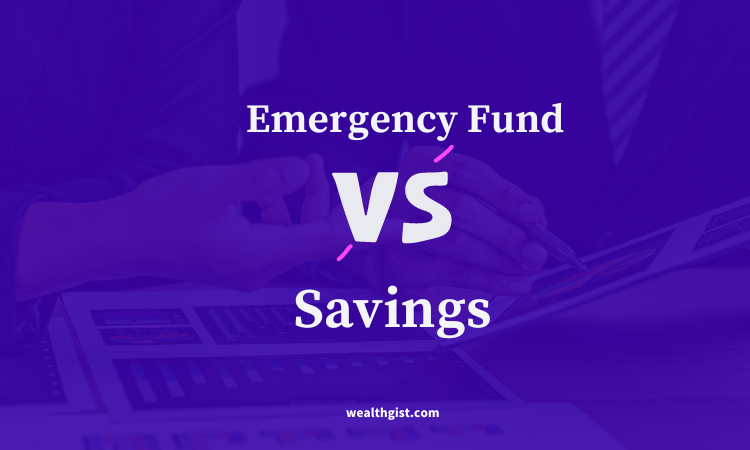For many households, unexpected expenses can upend even the most carefully planned budget. According to the Board of Governors of the Federal Reserve System, over 32 percent of adults in the United States would have difficulty or be unable to pay for an unplanned expense of $400 or more.
An emergency fund setup can help alleviate the potential stress of such a situation. What is the difference between an emergency fund and a savings account? Read on to learn more about an emergency fund vs savings account.

Similarities
The purpose of the fund is perhaps the most definitive of the key differences between an emergency fund and a savings account.
Emergency Funds and Savings Accounts are typically held in a bank account in a standard savings account, usually incurring very little if any interest.
While both an emergency fund and a savings account can be held in similar fashions, the designated purpose for the account is different.
Differences
Savings Account
A savings account is typically intended to save for larger and longer-term goals such as college, buying a home, vacation, cushion funds, or upcoming expected items such as property taxes, insurance, or vehicle registration.
These are expenses that you are planning for and expect to incure. While these expenses may vary in amount and even change or grow over time, they are expenses that you work toward.
Emergency Fund
An emergency fund is intended to cover unexpected expenses that may be a surprise such as an auto repair, a medical emergency not covered by insurance, emergency travel expenses, unexpected home repair, emergency veterinarian charges, unplanned child care expenses, education-related expenses not already planned for or even unplanned food expenses.
Accessibility
Another key factor in the difference between a savings account and an emergency fund can be the ability to access funds when you need them. Depending on how your savings account is structured, you may not be able to access funds right away.
If you have your savings account in a high-yield or investment-style account, it might mean going through a bit of a process to retrieve the funds.
This can typically work well for long-term savings goals where the funds are not needed until sometime in the future and when there is plenty of notice that money will need to be moved and when. These funds can collect interest, typically in small amounts, and sit idle until you are ready for that expected expense.
Emergency funds should be accessible within 24 to 48 hours. There is no telling when a withdrawal will need to be made since the money will be used for an emergency. These emergency funds are typically kept in a standard savings account to ensure that the money can be accessed quickly with little or no hassle.
Additionally, emergency funds should be accessible with the use of a debit card to allow for access even when the banking institution is not nearby or not open for business. Emergencies tend to happen when least expected and not necessarily during regular business hours.
Deciding On An Emergency Fund Or A Savings Account
An emergency fund should not be accessed unless there is a true emergency that either cannot be paid for with your regular household funds or to avoid getting into debt by using a credit card, taking out a loan, or putting off paying for causing late fees and interest and potentially causing damage to credit scores.
The amount that should be set aside in an emergency fund is very specific to your comfort level, however, a good guideline is to have a few months of regular expenses set aside in an emergency fund if possible.
Having both an emergency fund and a savings account can provide confidence in paying expenses and could make personal finance planning significantly less stressful.
Each of these types of savings has a significant impact on a household budget but having both can set you up to be more successful in the long run. Both options provide an effective way to avoid the disaster that comes with unexpected and long-term expenses keeping your budget on track.
Shawn Manaher is a former financial advisor, has founded 5 online businesses, and is a coach, speaker, podcast host, and author.
He's been featured on The Consults Corner on TAE Radio, The Writing Biz, What's Your Story, and more.
He loves to share his personal finance tips and money management wisdom with others on his website, ShawnManaher.com, to help them find financial freedom.


